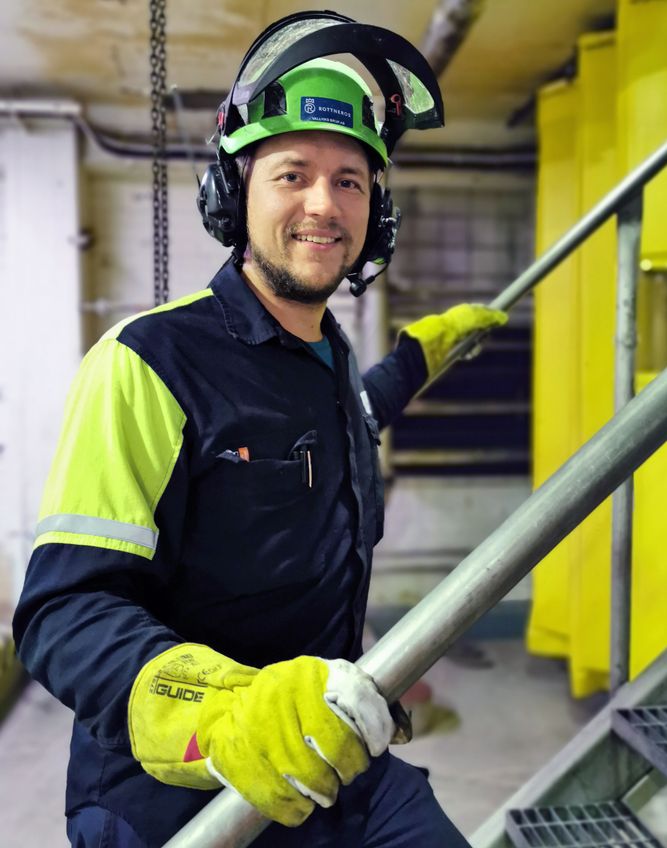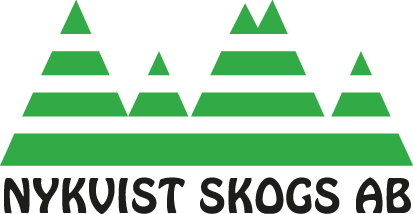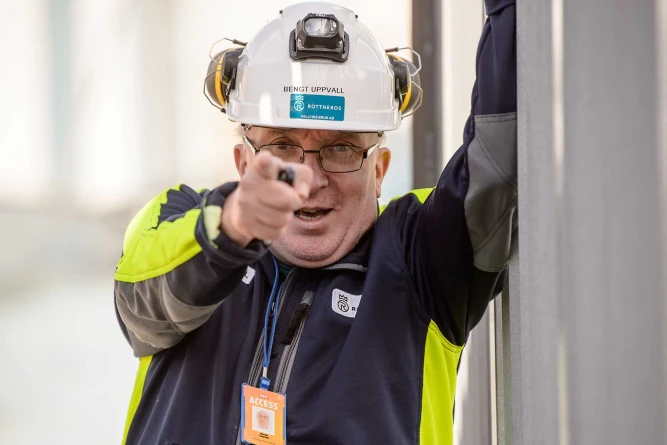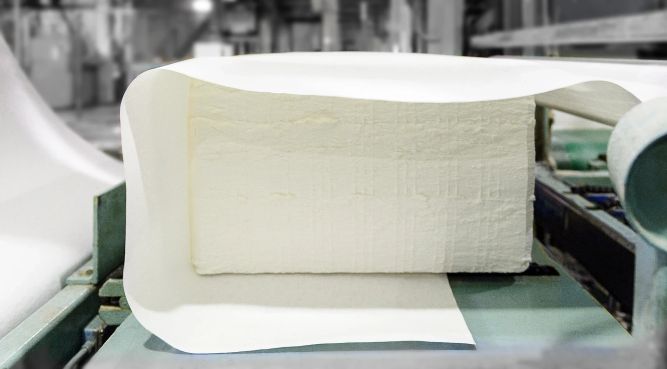Fredrik Backman, Product Manager
Fredrik Backman started as an operator at Vallvik Mill 2015 and is currently production manager. During his time as an operator, he was a supervisor for trainees on the operator program four times.

First of all, what does a production manager do?
“You are the personnel manager and coordinator for a shift team consisting of six operator areas with two employees assigned to each one, i.e., a total of twelve people. The production manager must be able to make decisions and is the person to turn to if there are any hassles. There are six shift teams and as many production managers and the head of production coordinates all this.”
What does it take to be a good supervisor?
“You need to set a good example, not to go too quickly, and to put safety first in all situations. You mustn’t forget that most trainees have no industrial experience at all.”
What are your biggest plus points as a supervisor?
“I think it’s an advantage that I’m relatively new. I’m inquisitive and I want to know why things are done one way and not another, as maybe there are better ways to solve the problem. If you can’t answer a trainee’s question, then you have something to learn. I have this insight, which is why I can develop personally as a supervisor."
"I think my teaching method works, too. I try to break down functions and processes in the factory and explain them by drawing illustrations of things from everyday life. For example, pressure can be explained by a pot with lids like a stacked steamer."
Can trainees change supervisor during the training?
“It’s possible to change if they are stuck in the learning process and maybe think in completely different ways to their supervisor. But not many people want to change shift team once they have entered the community spirit. The shift team is family, work colleagues and friends all rolled into one.”
What is your advice to trainees in order to succeed?
“Your own commitment is crucial. If you want to learn, you need to find a way. Some learn just by listening, but most trainees need to write notes and read them back again and again. It’s your responsibility, you just have to make sure you create the right conditions.”
Are trainees ready after their training?
“No, it takes several years to become competent. Often you get to accompany someone as an assistant for a couple of months into the job. Even today I discover new things and I’ve been here almost seven years, things that might happen once every 10 years. Besides, there are six shift teams, so the probability of having the exact same problem is low."
"But even if you haven’t been there and done that yourself, you can learn by asking your colleagues how they solved the problem. Otherwise, you won’t know. It’s a question of being genuinely interested and without too much pride to ask. Some colleagues who have worked less time may be able to solve the problem if they’ve experienced it before.”
What is the most rewarding about being a supervisor?
“You learn a lot yourself, and you’re important. Much of the trainee’s experience and learning depends on how knowledgeable and committed the supervisor is. It’s about planning well, getting the level right, answering questions and providing support after the training per se. There are many things that can’t be covered in one year of training, as you don’t have time to encounter all the situations that can arise in the factory."
"As a supervisor you see clearly when the trainee knows their job when you’re able to take a back seat. The trainee sits by the levers and we can ask, reflect and support using such terms as “Why did you do that? Do you have a thought about that? Are there other ways to solve the problem etc.?”
What’s the best thing about Vallvik Mill?
“There are short decision paths and it’s easy to get to know your colleagues through your tasks. Especially if you have a mission that covers the entire factory, such as safety representative.”



